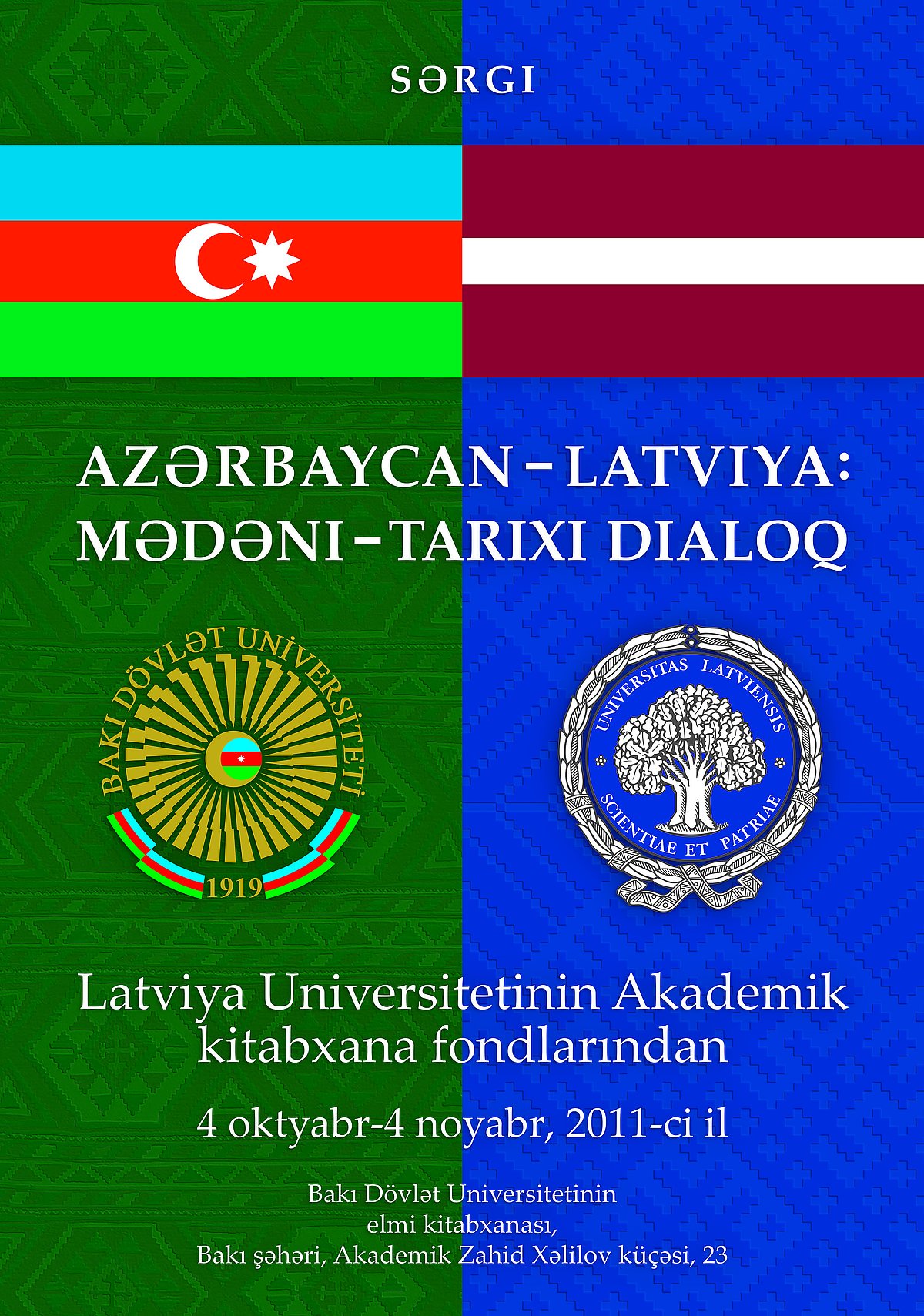
The guests of honour at the Exhibition opening were: Hardijs Baumanis, Ambassador of the Republic of Latvia to Azerbaijan, Prof. Marcis Auziņš, Rector of the UL, Abel M. Maharramov, Rector of Baku State University, Venta Kocere, Director of the UL Academic Library, Romāns Alijevs, Chairman of the Advisory Council of Ethnic Minorities to the President of Latvia, as well as representatives of the Azerbaijani science, education and culture, and a diplomatic delegation.
The Exhibition unveils historical evidence of the life of Latvians in Azerbaijan and vice versa. It also highlights bilateral cooperation in various scientific, educational and cultural areas.
Even though the Amber Road once ran through Latvia, while Azerbaijan was associated with the ancient Silk Road, the two geographically remote countries have gone similar paths, evolving and improving over the centuries.
At the beginning of the twentieth century, many outstanding Latvian cultural and artistic scene representatives were drawn to Azerbaijan. For instance, the writer Ernests Birznieks-Upītis spent many years in Azerbaijan. So did the writer and painter Jānis Jaunsudrabiņš. While the writers Pāvils Rozītis, Sudraba Edžus, Jānis Vainovskis and Augusts Bērce settled for life in Azerbaijan. Moreover, the writer Andrejs Upīts stayed in this country for several months. Antons Balodis, renowned diplomat and Foreign Minister, worked at the Latvian Association in Azerbaijan. The painter Jāzeps Grosvalds captured in his paintings Oriental motifs of Baku streets, while the prominent composer Jāzeps Mediņš worked at the local opera.
The UL Academic Library Rare Manuscripts and Books collection has postcards sent to Ernests Birznieks-Upītis by a number of his contemporary writers during his stay at Baku (Balakhan). A poster of Jānis Jaunsudrabiņš painting exhibition as well as other fascinating materials can be found in the collection.
Several professors and lecturers of the UL have worked in Azerbaijan. Starting from 1920, the Latvian microbiologist Jānis Lūsis headed the newly-opened Bacteriology and General Pathology Department at Baku University. Professor Jānis Kupcis worked at Zurnabad Bacteriology Station. UL Associate Professor Nikolajs Tranze participated at ornithological expedition in Baku governorate in Lenkoran district. Moreover, the botanist Auseklis Veģis studied at Baku Science School No.1 during World War I. Also, Heinrihs Leonhards Skuja, Professor of Natural Sciences, once worked as a technician-designer in Baku.
Nowadays, Latvia maintains an active dialogue with Azerbaijan through meetings and consultations at the levels of heads of state, experts and social workers.
Translated by students of the professional study programme Translator of the University of Latvia.
Translated by students of the professional study programme Translator of the University of Latvia.

 CONFERENCE
CONFERENCE